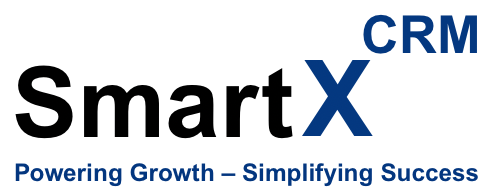Introduction
Running a small business on Mac requires specialized tools that integrate seamlessly with Apple’s ecosystem. In 2025, CRM software for Mac has evolved significantly, with a growing focus on native macOS integration, AI-driven automation, and streamlined, all-in-one platforms tailored to small and midsize business users. Choosing the right small business CRM for Mac can revolutionize how you manage customer relationships, automate sales processes, and drive business growth.
In this comprehensive guide, we’ll explore everything you need to know about Mac-compatible CRM solutions, from essential features to implementation strategies. Whether you’re a solopreneur or managing a growing team, you’ll discover how to select and deploy the perfect CRM system for your Mac-based business operations.
Why Mac Users Need Specialized CRM Solutions
The Mac Business Ecosystem Challenge
Mac users face unique challenges when selecting business software. Many CRM platforms are designed primarily for Windows environments, leading to compatibility issues, limited functionality, or poor user experience on macOS. This is where Mac native CRM software becomes crucial for seamless business operations.
A CRM is Mac OS X compatible when it offers a native app or optimized browser experience for macOS, supports direct integrations (with Mail, Calendar, Contacts), and leverages Mac-specific features like system notifications. This level of integration is essential for maintaining productivity and ensuring your CRM solution works harmoniously with your existing Mac workflows.
The Growing Importance of CRM for Small Businesses
Small businesses without proper CRM systems face numerous challenges that can significantly impact their growth potential. From missed follow-ups to disorganized customer data, these issues compound over time, leading to lost revenue and decreased customer satisfaction.
Modern CRM software for small businesses on Mac addresses these challenges by providing:
- Centralized customer database management
- Automated lead tracking and nurturing
- Seamless integration with Apple’s ecosystem
- Mobile accessibility across iPhone and iPad devices
- Advanced analytics and reporting capabilities
For businesses looking to understand the broader impact of CRM implementation, our detailed guide on CRM vs Excel: Why You Need to Upgrade explains the critical differences and benefits of moving beyond spreadsheet-based customer management.
Essential Features of Mac CRM Software
Native macOS Integration
The best Mac CRM solutions offer more than just compatibility – they provide true native integration with Apple’s ecosystem. By leveraging native Apple features such as Apple Mail, Contacts, and Calendar, Daylite offers a cohesive user experience across Mac, iPhone, and iPad devices. Its offline functionality ensures uninterrupted access to critical business information, even without an internet connection.
Key integration features to look for include:
- Apple Mail Integration: Automatic email tracking and synchronization
- Calendar Synchronization: Seamless appointment scheduling and reminder management
- Contact Management: Direct integration with Mac’s native Contacts app
- System Notifications: Real-time alerts through macOS notification system
- Spotlight Search: Quick access to CRM data through Mac’s universal search
Advanced Automation Capabilities
Modern CRM automation for Mac users goes beyond basic task management. Today’s leading solutions incorporate AI-driven features that learn from user behavior and automatically optimize workflows.
Essential automation features include:
- Lead Scoring and Routing: Automatic lead qualification and assignment
- Email Campaign Management: Personalized drip campaigns and follow-up sequences
- Task and Reminder Automation: Context-aware scheduling and deadline management
- Workflow Triggers: Custom automation rules based on customer actions
- Sales Pipeline Management: Automatic deal progression and stage updates
For businesses interested in leveraging automation to reduce manual work, our article on Sales Team Automation with Mizo CRM provides detailed insights into how automation can transform sales productivity.
Mobile-First Design for Mac Ecosystem
With Mac users typically owning multiple Apple devices, mobile CRM for Mac business owners must provide consistent functionality across all platforms. The best solutions offer:
- Universal App Design: Consistent interface across Mac, iPhone, and iPad
- Offline Synchronization: Access to critical data without internet connectivity
- Touch-Optimized Interface: Intuitive gestures and navigation on mobile devices
- Real-Time Data Sync: Instant updates across all connected devices
- Location-Based Features: GPS integration for field sales and service teams
Top Small Business CRM Options for Mac in 2025
Cloud-Based CRM Solutions
Cloud-based CRM for Mac offers several advantages, including automatic updates, scalability, and accessibility from any device. Here are the leading options:
HubSpot CRM
You want a robust free Mac CRM for your small business: HubSpot CRM is our pick for the best free CRM by a large margin. It comes with five users and the mobile CRM app for iOS devices like iPhones and iPads. HubSpot’s comprehensive free tier makes it an excellent starting point for small businesses.
Key Features:
- Free forever plan with essential CRM functionality
- Native integration with Apple ecosystem
- Advanced marketing automation tools
- Comprehensive reporting and analytics
- Scalable pricing as your business grows
Zoho CRM
Zoho CRM is the tool I recommend when someone says, “I want something flexible, but I don’t want Salesforce.” It’s packed with features—contact management, deal tracking, automation workflows—but it won’t drain your budget or demand an IT team to set it up.
Key Features:
- Extensive customization options
- AI-powered sales assistance
- Multi-channel communication management
- Advanced workflow automation
- Affordable pricing for small businesses
Native Mac CRM Applications
For businesses requiring deeper macOS integration, native applications provide superior performance and user experience:
Daylite CRM
Daylite streamlines your business operations by combining your CRM, sales pipeline, project management, email, calendar, tasks, and notes into one Apple-native app, saving you time on the busywork that you can spend making money.
Unique Advantages:
- Built specifically for Mac ecosystem
- Integrated project management capabilities
- Advanced Apple Calendar integration
- Offline functionality with cloud sync
- Multi-device synchronization across Apple devices
Industry-Specific CRM Solutions
Different industries have unique requirements that generic CRM solutions may not address effectively. Industry-specific CRM for Mac businesses provides tailored functionality for specialized needs.
For businesses in specific sectors, we offer detailed guides on:
- Best CRM for Service-Based Businesses
- Healthcare CRM Software Implementation
- Real Estate CRM Solutions
- Legal CRM Software
Implementation and Setup Guide
Pre-Implementation Planning
Before selecting and implementing a Mac-compatible CRM system, conduct a thorough assessment of your business requirements:
Business Requirements Analysis
- Current Customer Management Processes: Document existing workflows and pain points
- Team Size and Growth Projections: Consider both current needs and future scaling requirements
- Integration Requirements: Identify essential third-party tools and applications
- Budget Considerations: Establish realistic budget parameters for software and implementation
- Compliance Needs: Ensure the CRM meets industry-specific regulatory requirements
Data Migration Planning
Successful CRM implementation depends heavily on proper data migration strategy:
- Data Audit: Clean and organize existing customer data
- Format Standardization: Ensure consistent data formatting across all records
- Backup Creation: Create comprehensive backups before migration
- Testing Environment: Set up a test environment for migration trials
- User Training Schedule: Plan comprehensive training for all team members
Technical Setup and Configuration
System Requirements and Compatibility
Modern Mac CRM installation requires attention to system specifications and compatibility:
Minimum Requirements:
- macOS 12.0 or later for optimal performance
- 8GB RAM for smooth operation with multiple applications
- Reliable internet connection for cloud-based solutions
- Active Apple ID for App Store downloads
- Current web browser versions for browser-based CRM access
Integration Setup
Mac users will want CRMs that work smoothly with tools like Apple Mail, Calendar, and even project management software like Trello. Proper integration setup ensures seamless workflow continuity.
Critical Integration Points:
- Email Integration: Configure automatic email tracking and synchronization
- Calendar Sync: Set up bidirectional calendar synchronization
- Contact Management: Enable automatic contact creation and updates
- Third-Party Tools: Connect essential business applications and services
- Mobile Device Setup: Configure synchronization across all Apple devices
User Training and Adoption
Training Program Development
Successful CRM adoption requires comprehensive user training tailored to different roles within your organization:
Training Components:
- Basic Navigation: Fundamental system operation and interface familiarity
- Data Entry Standards: Consistent data input procedures and best practices
- Automation Setup: Configuration of automated workflows and triggers
- Reporting and Analytics: Utilization of reporting tools for business insights
- Mobile Usage: Effective use of mobile applications and features
Change Management Strategies
Implementing new CRM technology requires careful change management to ensure user adoption:
- Executive Sponsorship: Secure leadership commitment and support
- Champion Identification: Identify and train power users within each department
- Gradual Rollout: Implement in phases to minimize disruption
- Feedback Mechanisms: Establish channels for user feedback and improvement suggestions
- Ongoing Support: Provide continuous support and advanced training opportunities
Advanced CRM Strategies for Mac Businesses
Lead Generation and Management
Effective lead generation CRM for Mac combines multiple channels and automation to create a comprehensive lead acquisition system. Modern CRM solutions integrate with various lead sources to create a unified pipeline.
For businesses looking to optimize their lead generation strategies, our comprehensive guides provide detailed insights:
- Ultimate Guide to Lead Generation Tools
- Home Services Lead Generation
- Facebook Lead Generation Transformation
Multi-Channel Lead Integration
Configure your CRM to capture leads from multiple sources:
- Website Forms: Direct integration with contact forms and landing pages
- Social Media Platforms: Automatic lead capture from Facebook, LinkedIn, and Instagram
- Email Marketing: Integration with email campaigns and newsletter signups
- Referral Programs: Tracking and management of referral-based leads
- Offline Sources: Manual entry capabilities for trade shows and networking events
Lead Scoring and Qualification
Implement sophisticated lead scoring mechanisms to prioritize high-value prospects:
- Demographic Scoring: Points based on company size, industry, and location
- Behavioral Scoring: Actions such as website visits, email opens, and content downloads
- Engagement Scoring: Level of interaction with sales and marketing content
- Timing Factors: Recency of interactions and purchase timeline indicators
- Custom Criteria: Industry-specific factors relevant to your business model
Sales Pipeline Optimization
Mac CRM sales pipeline management requires careful attention to pipeline stages, conversion rates, and sales velocity. Effective pipeline management provides visibility into revenue forecasting and identifies bottlenecks in the sales process.
Pipeline Stage Definition
Create clear, actionable pipeline stages that reflect your actual sales process:
- Prospecting: Initial lead identification and qualification
- Qualification: Budget, authority, need, and timeline assessment
- Presentation: Proposal development and presentation
- Negotiation: Price discussions and contract terms
- Closing: Final decision and contract execution
- Onboarding: Customer activation and initial service delivery
Conversion Rate Optimization
Monitor and optimize conversion rates between pipeline stages:
- Stage Conversion Analysis: Identify stages with low conversion rates
- Time-in-Stage Tracking: Monitor deal velocity and identify delays
- Win/Loss Analysis: Understand reasons for successful and failed deals
- Competitor Analysis: Track competitive wins and losses
- Sales Activity Correlation: Link activities to conversion outcomes
For businesses experiencing conversion challenges, our article on Conversion Rate Mistakes You Can’t Afford to Ignore provides actionable insights for improvement.
Customer Retention and Growth
Mac CRM customer retention strategies focus on maintaining relationships post-purchase and identifying expansion opportunities. Effective retention programs significantly impact long-term revenue and customer lifetime value.
Post-Purchase Engagement
Develop systematic approaches to maintain customer relationships:
- Onboarding Sequences: Structured introduction to products and services
- Regular Check-ins: Scheduled customer health assessments
- Value-Added Content: Educational resources and industry insights
- Loyalty Programs: Rewards and incentives for continued engagement
- Feedback Collection: Regular satisfaction surveys and improvement initiatives
Expansion Opportunity Identification
Use CRM data to identify and pursue growth opportunities:
- Usage Pattern Analysis: Monitor product or service utilization levels
- Account Health Scoring: Assess overall customer satisfaction and engagement
- Cross-Sell Identification: Identify complementary products or services
- Upsell Opportunities: Recognize customers ready for premium offerings
- Renewal Forecasting: Predict and manage contract renewal timelines
Security and Data Protection
Data Security Best Practices
Look for solutions that comply with data protection regulations and offer features like encryption and two-factor authentication for added security. Additionally, consider the CRM’s data backup and recovery options.
Essential Security Features:
- End-to-End Encryption: Protection of data in transit and at rest
- Multi-Factor Authentication: Additional layers of access security
- Role-Based Access Control: Granular permissions based on user roles
- Regular Security Audits: Ongoing assessment of system vulnerabilities
- Compliance Certifications: GDPR, CCPA, and industry-specific compliance
Backup and Recovery Strategies
Implement comprehensive backup and recovery procedures to protect critical business data:
- Automated Backups: Regular, automated data backup schedules
- Multiple Backup Locations: Redundant storage across different geographic locations
- Recovery Testing: Regular testing of backup restoration procedures
- Data Retention Policies: Clear guidelines for data archival and deletion
- Disaster Recovery Planning: Comprehensive plans for system recovery scenarios
Integration with Mac Business Tools
Apple Ecosystem Integration
Mac business tool integration maximizes productivity by connecting CRM functionality with existing workflows and applications.
Native Apple Applications
- Apple Mail: Automatic email tracking and template management
- Apple Calendar: Seamless appointment scheduling and availability management
- Apple Contacts: Synchronized contact information across all devices
- Apple Notes: Integration of customer meeting notes and action items
- Siri Integration: Voice-activated CRM tasks and information retrieval
Third-Party Mac Applications
Popular Mac business applications that integrate with CRM systems:
- Project Management: Trello, Asana, and Monday.com for task coordination
- Accounting Software: QuickBooks and Xero for financial data integration
- Communication Tools: Slack and Microsoft Teams for internal collaboration
- Design Applications: Adobe Creative Suite for marketing material management
- File Storage: Dropbox and Google Drive for document management
Marketing Automation Integration
Connect your Mac CRM with marketing automation platforms to create comprehensive customer engagement strategies:
Email Marketing Platforms
- Mailchimp: Automated email campaigns and list management
- Constant Contact: Newsletter creation and distribution
- SendGrid: Transactional email automation and deliverability
- Campaign Monitor: Advanced segmentation and personalization
Social Media Management
- Hootsuite: Social media scheduling and monitoring
- Buffer: Content planning and publishing automation
- Sprout Social: Social engagement and analytics integration
For businesses looking to improve their email marketing effectiveness, our guide on Data-Driven Email Marketing provides strategies for increasing engagement and conversions.
ROI Measurement and Analytics
Key Performance Indicators (KPIs)
Track essential metrics to measure Mac CRM ROI and business impact:
Sales Metrics
- Lead Conversion Rate: Percentage of leads that become customers
- Average Deal Size: Mean value of closed deals
- Sales Cycle Length: Time from lead to customer conversion
- Win Rate: Percentage of qualified opportunities that close successfully
- Revenue Growth: Month-over-month and year-over-year revenue increases
Customer Metrics
- Customer Acquisition Cost (CAC): Total cost to acquire a new customer
- Customer Lifetime Value (CLV): Total revenue expected from a customer relationship
- Retention Rate: Percentage of customers retained over specific periods
- Net Promoter Score (NPS): Customer satisfaction and loyalty measurement
- Support Ticket Resolution Time: Efficiency of customer service operations
Reporting and Dashboard Configuration
Create comprehensive reporting systems that provide actionable insights:
Executive Dashboards
High-level metrics for leadership decision-making:
- Revenue forecasting and pipeline health
- Customer acquisition and retention trends
- Team performance and productivity metrics
- Market penetration and competitive analysis
Operational Reports
Detailed reports for day-to-day management:
- Individual sales representative performance
- Lead source effectiveness and ROI
- Customer service resolution metrics
- Product or service performance analysis
Future-Proofing Your Mac CRM Investment
Emerging Technology Trends
Future of Mac CRM technology includes several innovative developments that will reshape customer relationship management:
Artificial Intelligence Integration
- Predictive Analytics: AI-powered forecasting and opportunity identification
- Chatbot Integration: Automated customer service and lead qualification
- Sentiment Analysis: Automatic customer satisfaction assessment from communications
- Intelligent Automation: Context-aware task automation and workflow optimization
Voice Technology
- Voice Commands: Siri integration for hands-free CRM operation
- Voice Notes: Automatic transcription of customer conversations
- Voice Analytics: Analysis of customer call patterns and preferences
Scalability Planning
Design your CRM implementation with future growth in mind:
- User Scalability: Choose solutions that accommodate team growth
- Data Volume Management: Ensure systems can handle increasing data volumes
- Feature Expansion: Select platforms with comprehensive upgrade paths
- Integration Flexibility: Maintain compatibility with evolving business tools
- Global Expansion: Consider multi-currency and multi-language capabilities
Common Implementation Challenges and Solutions
Technical Challenges
Integration Complexity
Mac CRM integration challenges often arise from incompatible data formats or API limitations:
Solutions:
- Utilize professional migration services for complex data transfers
- Implement gradual integration phases to minimize disruption
- Leverage middleware solutions for difficult integrations
- Maintain parallel systems during transition periods
Performance Optimization
Ensure optimal performance across all Mac devices:
- System Resource Management: Monitor CPU and memory usage
- Network Optimization: Optimize internet connectivity for cloud-based solutions
- Cache Configuration: Implement proper caching for frequently accessed data
- Regular Maintenance: Schedule routine system maintenance and updates
User Adoption Challenges
Resistance to Change
Address common resistance factors through strategic change management:
- Communication Strategy: Clear explanation of benefits and necessity
- Involvement in Selection: Include users in CRM selection process
- Gradual Implementation: Phase rollout to minimize overwhelming users
- Success Story Sharing: Highlight early wins and positive outcomes
- Continuous Support: Provide ongoing training and assistance
Training and Support
Develop comprehensive support systems:
- Multi-Modal Training: Various learning formats to accommodate different preferences
- Peer Mentoring: Pair experienced users with newcomers
- Documentation Libraries: Comprehensive help resources and tutorials
- Regular Training Updates: Ongoing education about new features and capabilities
Conclusion
Selecting and implementing the right small business CRM for Mac is a critical decision that can significantly impact your business growth and customer relationships. The key to success lies in understanding your specific business requirements, evaluating solutions based on Mac ecosystem integration, and developing a comprehensive implementation strategy.
Modern Mac CRM solutions offer unprecedented capabilities, from AI-powered automation to seamless cross-device synchronization. By focusing on native macOS integration, comprehensive feature sets, and scalable architecture, you can create a customer relationship management system that grows with your business.
Remember that CRM implementation is not just about technology – it’s about transforming how your organization approaches customer relationships. Success requires commitment to change management, user training, and continuous optimization based on performance metrics and user feedback.
As we move through 2025, the landscape of Mac CRM solutions continues to evolve, offering new opportunities for small businesses to compete effectively in their markets. By staying informed about emerging trends and maintaining a strategic approach to CRM utilization, your Mac-based business can achieve sustainable growth and exceptional customer satisfaction.
For businesses ready to take the next step in their CRM journey, we encourage you to explore our comprehensive CRM solutions designed specifically for modern business needs. Our platform offers the perfect combination of Mac compatibility, advanced features, and scalable architecture to support your business growth objectives.
The future of customer relationship management is bright for Mac users, with continued innovation in integration, automation, and user experience. By making informed decisions and implementing best practices, your small business can leverage CRM technology to build lasting customer relationships and achieve long-term success.





Leave a comment: